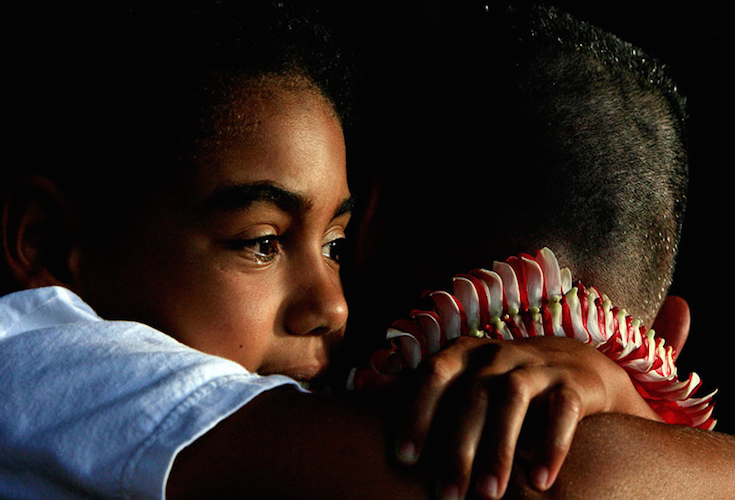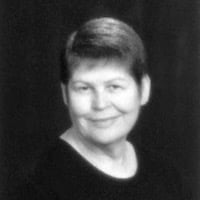 Some people believe forgiveness is important—others don’t.
Some people believe forgiveness is important—others don’t.
In the book, Alcoholics Anonymous, author (and co-founder of AA), Bill Wilson discusses forgiveness as a necessity for sobriety.
But rather than forgiveness, he calls it “letting go of resentment” and says we don’t do it to please others, but out of self-interest.
“Resentment is the ‘number one’ offender. It destroys more alcoholics than anything else. From it stem all forms of spiritual disease, for we have been not only mentally and physically ill, we have been spiritually sick. When the spirituality malady is overcome, we straighten out mentally and physically…It is plain that a life which includes deep resentment leads only to futility and unhappiness…
[This] business of resentment is infinitely grave….fatal…If we were to live, we had to be free of anger…They [resentments] may be the dubious luxury of normal men, but for alcoholics these things are poison.”
On the other hand, there are the scientific psychologists, like Susan Forward, author of Toxic Parents: Overcoming Their Hurtful Legacy and Reclaiming Your Life, as well as Ellen Bass and Laura Davis, authors of The Courage to Heal: A Guide for Women Survivors of Child Sexual Abuse, who proclaim that forgiveness is not necessarily a part of the process of changing—it might even be dangerous. In talking about recovering from an abusive childhood, Susan Forward says this:
“You may be asking yourself, ‘Isn’t the first step to forgive my parents?’ My answer is no…[It] is not necessary to forgive your parents in order to feel better about yourself and to change your life…Why in the world should you ‘pardon’ a father who terrorized and battered you, who made your childhood a living hell?…
Early in my professional career I too believed that to forgive people who had injured you, especially your parents, was an important part of the healing process…The more I thought about it, the more I realized that this absolution was really another form of denial…
One of the most dangerous things about forgiveness is that it undercuts your ability to let go of your pent-up emotions. How can you acknowledge your anger against a parent whom you’ve already forgiven?”
Is it possible that Bill Wilson and Susan Forward are both right? Yes.
Susan Forward is correct when she says that we must own our anger. Anger is honest. Anger in the right setting is therapeutic. Anger can lead to justice. Anger can free us from tyranny. And by coming out against forgiveness, Forward allows us to take our time without shame. But Bill Wilson is also right. If we stop resenting people, we feel better about ourselves and others. This changes us and our lives.
It might be helpful to realize that letting go of anger does not mean we have to like the person who hurt us or continue to let that person hurt us. Actually, we don’t even have to be around people who hurt us if we don’t want to.
For years, I attended a church where I felt another member absolutely hated me. I loved to talk about my involvement in 12-step programs and she spoke up against me. “I am tired of hearing about those steps,” she used to say. One day she berated me at a meeting and I quietly left. I went home and wrote a letter to the pastor tending my resignation on the committee. I ended the letter with the lines, “You know, Christ asks us to love our neighbors and our enemies alike, but some people you just have to love from a distance.”
Forgiveness is also not a constant state. It ebbs and flows like the tide. Sometimes we feel good about those who hurt us, and other times we feel the anger all over again. But this doesn’t mean we have not progressed. I’ve found that, as long as I ask God for the strength to release my anger, or announce in my support group that I am going to “turn it over” to him, or talk to my therapist about my resentments, the anger comes less and less often.
Forgiveness is a personal choice and no one should be told to forgive when they’re not ready. We shouldn’t shame others, or feel shame ourselves if we find it hard to forgive. But I still gently encourage others to be open to the process of forgiveness because of how it has changed my life.
Years ago, I wrote my mother a letter offering her my forgiveness. When she received the letter, she cried (since I had asked her not to call me, my sister phoned to tell me). It was almost six months later that my mother went into the hospital for emergency surgery. As I sat by her bed in the recovery room, she reached out and took my hand. Tears started streaming down her face and she said, “Susie, you will never know how much your letter meant to me. I love you so much.” I started crying too and we just sat there in silence—the wounds healing and the peace settling into our hearts.
This was the beginning of a lifelong attempt to let go of the past and forgive the people who had hurt me. After forgiving my mom, I found it easier to forgive others, including myself for the mistakes I had made with my own children.
This is another obstacle to change that most of us don’t see: the guilt and shame we feel for hurting others. We can get so caught up in these feelings that we struggle to move on.
To begin forgiving ourselves, it’s important to accept the fact that we’re not perfect. But we can embrace our humanity and the fact that we make mistakes. The resulting humility is necessary for change.
One way to forgive ourselves is the time honored ritual of making amends. In 12-step programs, this process is part of both the eighth and ninth steps.
I had a really difficult time forgiving myself for neglecting my children. Even as I write this, I feel a lot of guilt. Since recognizing what I did to them, I have made what they call in 12-step programs “living amends.” This means doing now what you would have done then if you could go back in time.
Making amends means more than just an apology. If we’re rude to someone in the grocery store, maybe saying we’re sorry is enough, but if you’ve truly hurt someone on a deep level, making amends means offering a new relationship—one in which we make efforts, not only to stop hurting the person we care for, but to rebuild a relationship of nurturing and trust.
If we have some serious amends to make—for what 12-step programs call “wreckage of the past”—making them may be harder than we think and won’t always take the course we want or expect. Still, if we are to make meaningful change, we must go through this process.
In my relationship with my daughter, Kathy, this process deepened when she decided to have children. When she got pregnant, I felt I had the opportunity to make a significant amends to her and begin to forgive myself.
When she got pregnant, I was ecstatic. I wanted so much to be a grandmother and have a second chance at “parenting.” I also took heart in the confidence I had that she and her husband would make good parents and that the cycle of dysfunction I had been a part and perpetrator of would be broken by them.
Three months before she was due, she went into labor without even knowing it. She thought she was having a backache. By the time she was rushed to the hospital, the baby’s little foot had started to come out. The doctor said that if the delivery could be delayed just two weeks, the baby would have a chance. We prayed. We begged God. Her husband even dreamed the baby would wait. But on June 16, 1994, at 11:04 p.m., Jasmyne Marie Snyder was born. She weighed one and one-half pounds. I was there when she came out. She was perfect.
We watched over her for 14 days while she struggled to hang on. During this time, my heart ached for my daughter. The pain was as sharp as a knife. I had to ask God, “Why are you doing this? Kathy doesn’t deserve this. Punish me. I am the one who failed at parenting. Give her a chance to be a mother.”
The waiting made me sick.
Jasmyne sucked in air through her ventilator. Her little swollen hand reached out to me. When she grabbed my hand, it was as if she was pulling out a plug. Tears came rushing out of me.
She passed away on June 29, 1994. They took her off the ventilator and we all rushed down to the hospital chapel. Kathy couldn’t bear to be there and asked me if I would stand in for her. I was afraid, but I had to do this for her. The doctor, pastor, nurse, my son-in-law, and I all sat side-by-side. We each held her in turn.
A moment after she was placed in my arms, she stopped breathing. I was the last one to be with her on this earth. Later, my daughter told me how grateful she was for that. It was then that I felt I had finally made my amends to her. For the first time, I could really begin to forgive myself.
~
Where Love Abides.
The smell of jasmine floats in the air,
A memory that
Blows through me
Like a warm, sweet summer’s breeze.
A memory of you
Who will live in my heart forever,
It comes
From where I do not know
But I suppose
It goes
Where love abides.
In memory of Jasmyne Marie Snyder ~ June 16, 1994 – June 29, 1994 & Kathleen M. Snyder ~ January 12, 1969 – June 2, 2010
~
Relephant read:
Why we Need to say, “I’m sorry. Please forgive me. Thank you. I love you.”
~
Author: Susan Peabody
Image: Wikimedia Commons
Editor: Khara-Jade Warren
Copy Editor: Catherine Monkman
Social Editor: Erin Lawson
 Share on bsky
Share on bsky





Read 0 comments and reply